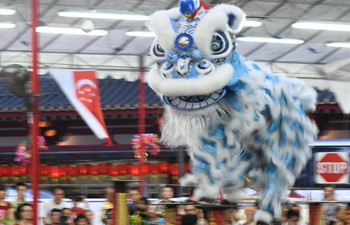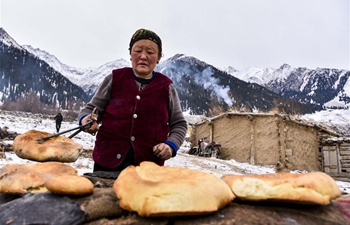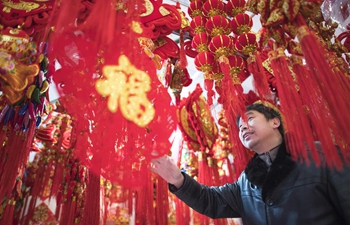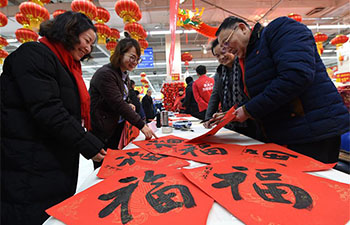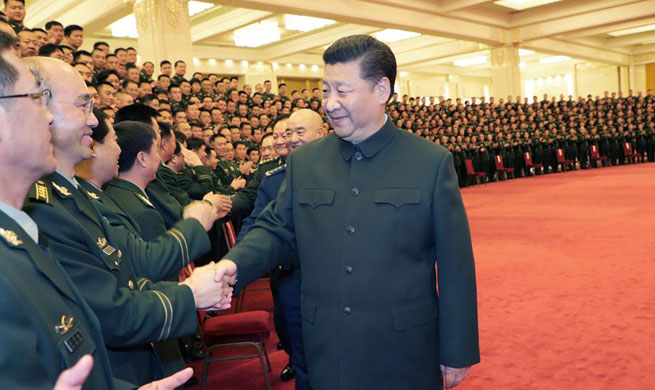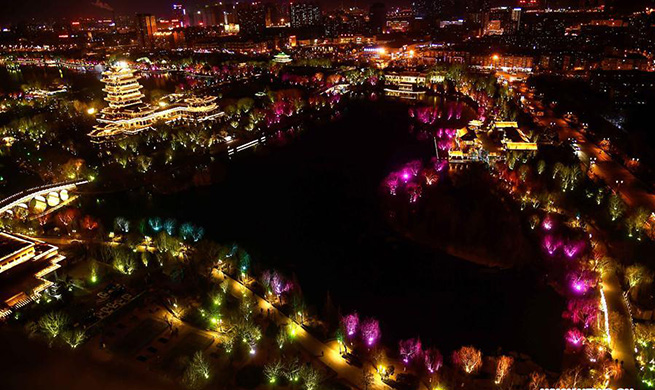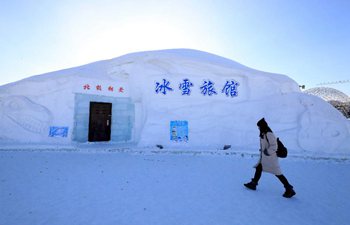GUANGZHOU, Feb. 4 (Xinhua) -- Cleaner Huang Xueying has nine cleaning rags and two mops in different colors, as well as several bottles of detergent, among other cleaning supplies.
"Colors are used to distinguish tools used for different purposes," Huang said. "The blue rag is for toilet seats, and the white for mirrors."
Huang, 43, works on the G79 high-speed train from Beijing to the south China city of Guangzhou. The train is among thousands of trains running during the 2018 Spring Festival travel rush, known as "Chunyun," which started Thursday.
Around 390 million passenger trips are expected to be made during the 40-day travel frenzy, up 8.8 percent year on year. The world's largest annual human migration for family reunion puts huge pressure on train workers, especially cleaners.
On older trains, often overloaded during travel rush, lavatories used to be a nightmare. They were often left with muddy floors, dirty squat toilets and waste paper littered everywhere. Passengers would often wait rather than elbow their way to such disgusting lavatories.
The situation has changed as China has upgraded most of its trains. Newer bullet trains are equipped with vacuum toilets and full-time cleaners, such as Huang.
On the eight-hour trip, Huang must check the sanitary conditions, do thorough cleaning, and note records for eight toilets in four carriages every 30 minutes.
"I take more than 22,000 steps every workday," Huang said.
Boxes of air fresheners, and disposable toilet seat covers are installed in every toilet, as are sinks and huge mirrors. Beside the sink, there are single-use combs, liquid soap, hand cream, and plants. Toilets with disabled access and baby-care facilities are also available on trains.
"Everything is sterilized. We want to provide a clean and comfortable toilet environment to make passengers feel at home," said Zhong Zhaoshuang, chief conductor of the train.
The modern vacuum toilet has replaced the former squats, through which excrement was directly discharged outside, said Zeng Guangxiang, a senior railway officer.
Almost all high-speed trains in China have 16 vacuum toilets, allowing excrement to be collected and then treated at certain stations.
According to Zeng, the change has significantly improved sanitary conditions along the route, lowering the concentration of flies and mosquitoes, and effectively preventing the spread of some diseases.
The improvements on trains are part of the broader "toilet revolution" in China.
In 2015, the National Tourism Administration began a three-year "toilet revolution", aiming to install 33,000 new toilets and upgrade another 24,000 existing ones in scenic areas across the country to provide sufficient clean, free, well-managed toilet facilities for the public.
"Clean and without any smell, the toilets on G97 are some of the best I have ever used on trains," said Lan Zhengqiang, a 64-year-old passenger. "Sanitary conditions have greatly improved in Chinese train toilets."
"It's backbreaking work, but serving passengers is our duty," said Huang Xueying. "As long as they are satisfied, everything pays off."




